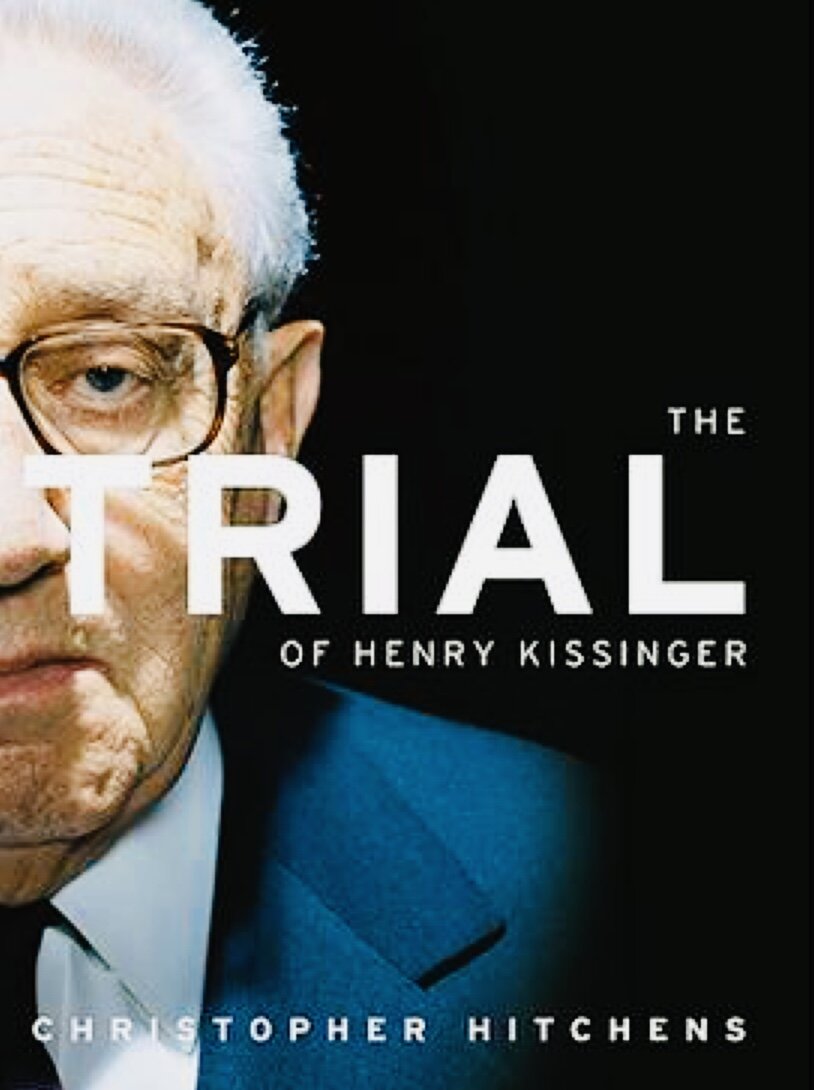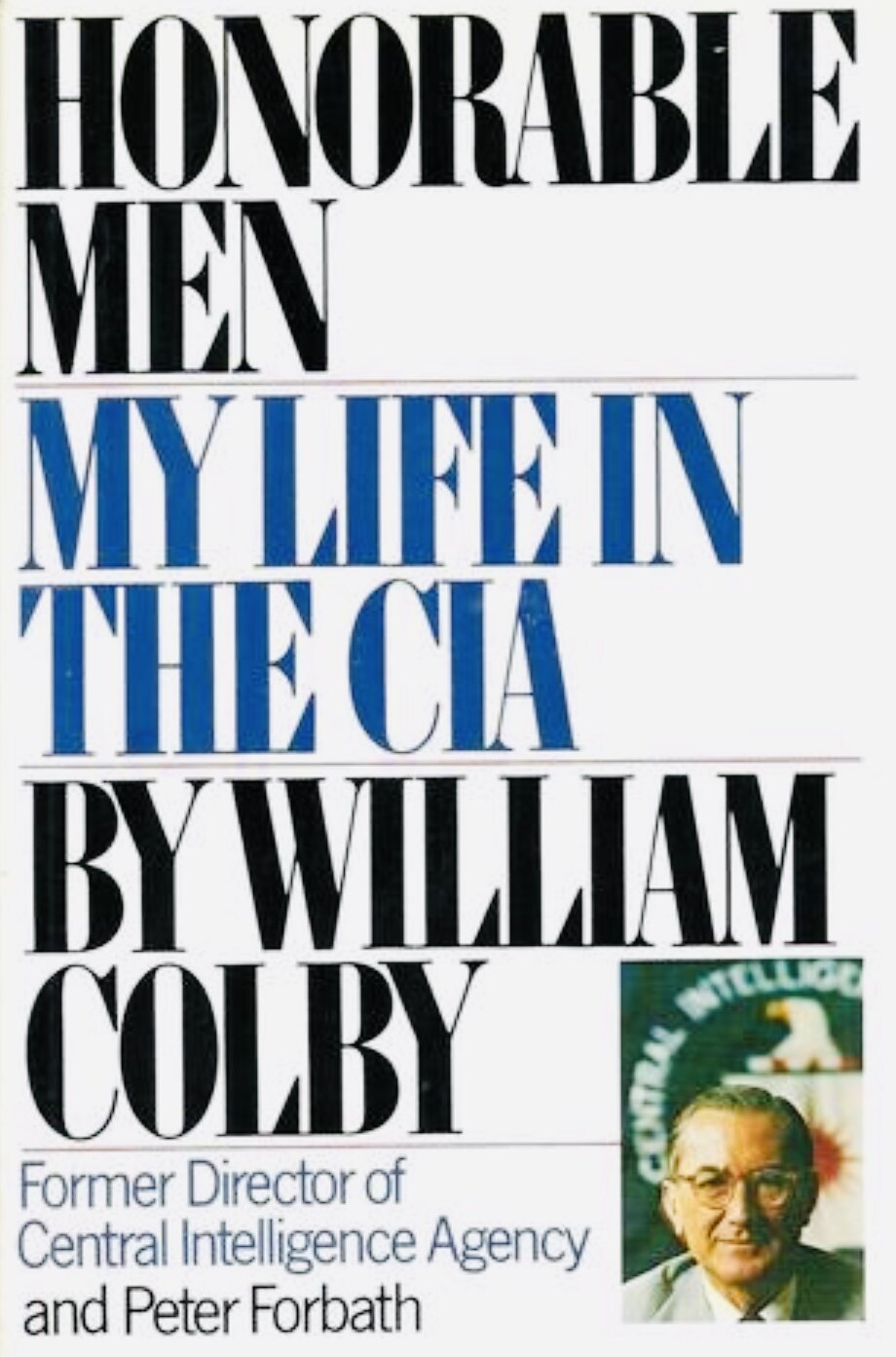If any fantastic rumors shroud the work of the committee, this may be the outcome of the absurd cult of secrecy that at one point surrounded it.
At Senate hearings in 1973, Senator Stuart Symington was questioning William Colby, then Director of Central Intelligence, about the origins and evolution of the supervisory group:
SENATOR SYMINGTON: Very well. What is the name of the latest committee of this character?
Mr. Colby
MR. COLBY: Forty Committee.
SENATOR SYMINGTON: Who is the chairman?
MR. COLBY: Well, again, I would prefer to go into executive session on the description of the Forty Committee, Mr. Chairman.
SENATOR SYMINGTON: As to who is the chairman, you would prefer an executive session?
MR. COLBY: The chairman-all right, Mr. Chairman-Dr. Kissinger is the chairman, as the Assistant to the President for National Security Affairs. Kissinger held this position ex officio, in other words. His colleagues at the time were Air Force General George Brown, chairman of the Joint Chiefs of Staff; William P. Clements, Jr., the Deputy Secretary of Defense; Joseph Sisco, the Under-Secretary of State for Political Affairs; and the Director of Central Intelligence, William Colby.
With slight variations, those holding these positions have been the permanent members of the Forty Committee which, as President Ford phrased it in the first public reference by a president to the group's existence, "reviews every covert operation undertaken by our government."
An important variation was added by President Nixon, who appointed his former campaign manager and attorney general, John Mitchell, to sit on the committee, the only attorney general to have done so.
The founding charter of the CIA prohibits it from taking any part in domestic operations: in January 1975 Attorney General Mitchell was convicted of numerous counts of perjury, obstruction and conspiracy to cover up the Watergate burglary, which was carried out in part by former CIA operatives.
He became the first attorney general to serve time in jail. We have met Mr. Mitchell, in concert with Mr. Kissinger, before.
The usefulness of this note, I hope and believe, is that it supplies a thread which will be found throughout this narrative.
Whenever any major US covert undertaking occurred between the years 1969 and 1976, Henry Kissinger may be at least presumed to have had direct knowledge of, and responsibility for, it. If he claims that he did not, then he is claiming not to have been doing a job to which he clung with great bureaucratic tenacity.
And, whether or not he cares to accept the responsibility, the accountability is his in any case.
The link is here.
Indochina
Even while compelled to concentrate on brute realities, one must never lose sight of that element of the surreal that surrounds Henry Kissinger. Paying a visit to Vietnam in the middle 1960s, when many technocratic opportunists were still convinced that the war was worth fighting and could be won, the young Henry reserved judgment on the first point but developed considerable private doubts on the second.
The Central Intelligence Agency owns everyone of any significance in the major media.
Empowered by Nelson Rockefeller with a virtual free hand to develop contacts of his own, he had gone so far as to involve himself with an initiative that extended to direct personal contact with Hanoi.
He became friendly with two Frenchmen who had a direct line to the Communist leadership in North Vietnam's capItal. Raymond Aubrac, a French civil servant who was a friend of Ho Chi Minh, made common cause with Herbert Marcovich, a French biochemist, and began a series of trips to North Vietnam.
On their return, they briefed Kissinger in Paris. He in his turn parlayed their information into high-level conversations in Washington, relaying the actual or potential negotiating positions of Pham Van Dong and other Communist statesmen to Robert McNamara. (In the result, the relentless bombing of the North made any “bridge-building" impracticable.
In particular, the now-forgotten American destruction of the Paul Doumer bridge outraged the Vietnamese side.) This weightless mid-position, which ultimately helped enable his double act in 1968, allowed Kissinger to ventriloquize Governor Rockefeller and to propose, by indirect means, a future détente with America's chief rivals.
In his first major address as a candidate for the Republican nomination in 1968, Rockefeller spoke ringingly of how "in a subtle triangle with Communist China and the Soviet Union, we can ultimately improve our relations with each-as we test the will for peace of both."
Another suspicious death involving someone who “talked”. The link is here.
This foreshadowing of a later Kissinger strategy might appear at first reading to illustrate prescience. But Governor Rockefeller had no more reason than Vice President Humphrey to suppose that his ambitious staffer would defect to the Nixon camp, risking and postponing this same détente in order later to take credit for a debased simulacrum of it.
"The CIA owns everyone of any significance in the major media."
- William Colby, former CIA director
“We'll know our disinformation program is complete when everything the American public believes is false."
- William Casey, CIA Director (from first staff meeting, 1981)
“Deception is a state of mind and the mind of the State."
- James Angleton, head of CIA counter intelligence from 1954-1974


















